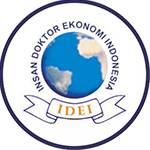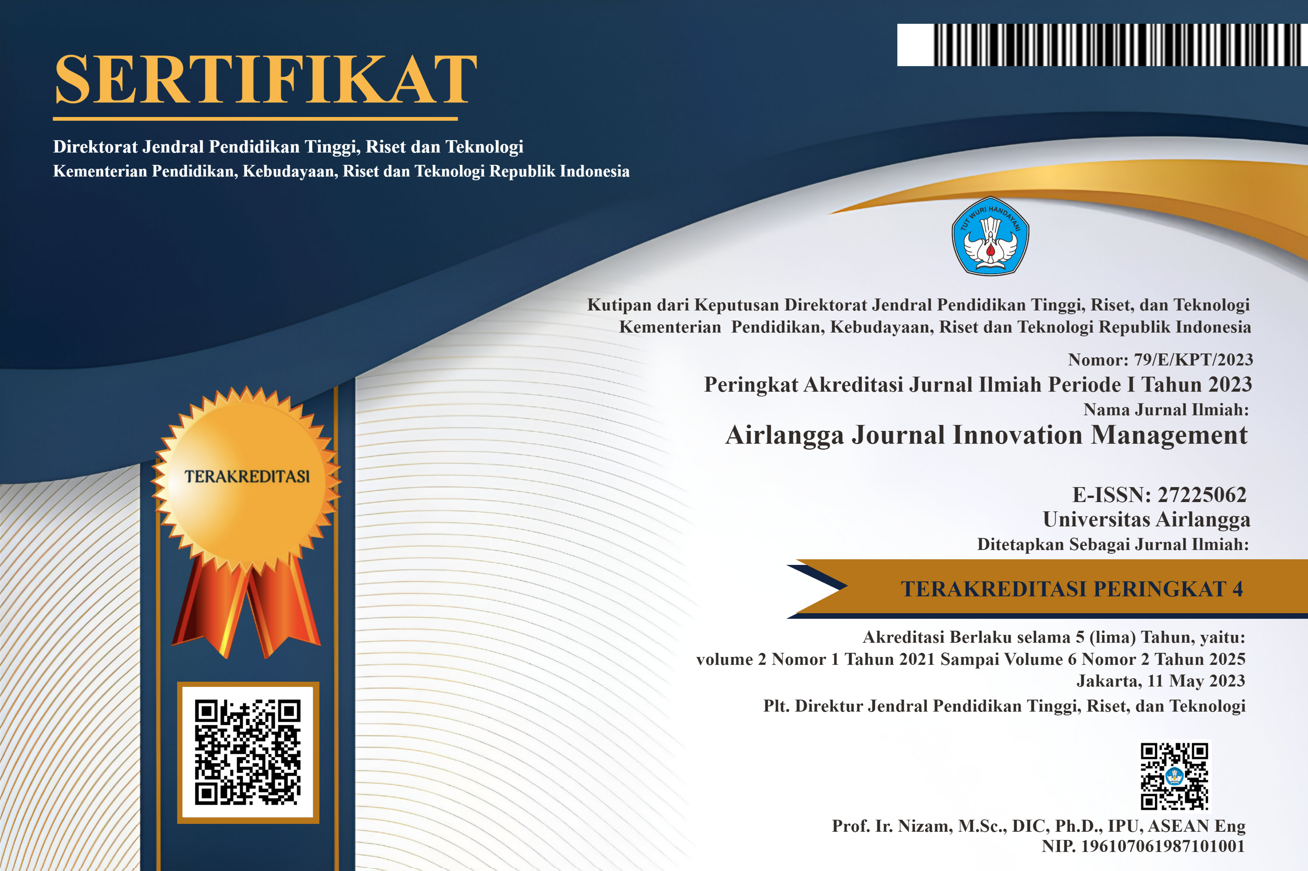Redenomination: A Critical Review of Islamic Economics Based on Maqashid Sharia
Redenomination is the process of reducing the nominal value or digits of a particular currency, either paper currency or coins, without reducing its intrinsic value. One of the reasons a country implements a redenomination policy is the high inflation. However, inflation is not the primary reason for Indonesia to implement redenomination. The main goals are currency simplification, financial data recording efficiency, improving regional competitiveness, and enhancing the dignity of the rupiah. This research aims to examine the policy of rupiah currency redenomination through the lens of Islamic economics grounded in the principles of maqashid sharia, to determine whether the policy contributes to public benefit or poses potential risks to society and the national economy. The result of this study indicates that redenomination is not prohibited in Islamic economic law. There are three outcomes following the implementation of redenomination: 1) the redenomination could be successful; 2) redenomination could fail due to insufficient preparation; 3) redenomination may fail even with optimal preparation. Regardless of the potential outcomes, the implementation of redenomination necessitates thorough preparations to ensure the expected benefits are realized. Otherwise, it may risk damaging the five essential elements of maqashid sharia. This study uses a qualitative descriptive method utilizing literature-based analysis.
Al-Quran, Terjemah, dan Tafsir. (2010). Bandung: Penerbit Jabal.
Adirestuty, F., Ratnasart, R. T., Wardhana, A. K., Miraj, D. A., & Battour, M. (2025). Gastronomy of religious tourism: Overview and future research agenda. Geo Journal of Tourism and Geosites, 58(1), 188–199.
Adzkiya, U. (2020). Analisis Maqashid Al-Syariah Dalam Sistem Ekonomi Islam dan Pancasila. JESI (Jurnal Ekonomi Syariah Indonesia), 10(1), 23. https://doi.org/10.21927/jesi.2020.10(1).23-35
Astrini, D., Juanda, B., & Achsani, N. A. (2016). Impact of Redenomination on Price, Volume, and Value of Transaction: an Experimental Economic Appraoch. Buletin Ekonomi Moneter Dan Perbankan, 19(2), 207–238. https://doi.org/10.21098/bemp.v19i2.630
Auda, J. (2008). Maqasid Al-Shariah as Philosophy of Islamic Law: A Systems Approach. The International Institute of Islamic Thought (IIIT).
Baeti, F. N., Juanda, B., & Asmara, A. (2018). Redenomination Policy and Economic Performance: Experimental and Historical Approach. Signifikan: Jurnal Ilmu Ekonomi, 7(2), 173–184. https://doi.org/10.15408/sjie.v7i2.6568
Bemi, W. W., & Nooraeni, R. (2019). Dampak Redenominasi Terhadap Inflasi Indonesia: Penanganan Missing Menggunakan Metode Case Deletion, Pmm, Rf Dan Bayesian. Indonesian Journal of Statistics and Its Applications, 3(3), 272–286. https://doi.org/10.29244/ijsa.v3i3.360
Bleaney, M., & Veleanu, V. (2021). Redenomination risk in eurozone corporate bond spreads. European Journal of Finance, 27(13), 1303–1325. https://doi.org/10.1080/1351847X.2021.1882524
Chapra, M. U. (2008). The Islamic Vision of Development in the Light of Maqasid al-Shari’ah. The International Institute of Islamic Thought (IIIT).
Darma, S. (2022). Urgensi Maqashid Syariah Dalam Pengembangan Ekonomi. Al Mashaadir : Jurnal Ilmu Syariah, 2(2), 44–53. https://doi.org/10.52029/jis.v2i2.58
DJKN. (2020). Menanti Redenominasi. Kementerian Keuangan.
Fattah, A. (2024). IMPLEMENTASI MAQASHID SYARIAH DALAM EKOSISTEM EKONOMI DAN KEUANGAN SYARIAH DI INDONESIA: ANALISIS PENCAPAIAN KESEJAHTERAAN SOSIAL DAN EKONOMI BERKELANJUTAN. El-Iqtishady: Jurnal Hukum Ekonomi Syariah, 6(2), 194–208.
Fauzi, Q., Ulfah, U., & Wijayanti, I. (2024). Ethical challenges in transportation: A study on the implementation of Islamic business values. Al-Uqud: Journal of Islamic Economics, 8(2).
Fauziana, H., Wardhana, A. K., & Rusgianto, S. (2022). The Effect of Education, Income, Unemployment, and Poverty toward the Gini Ratio in Member of OIC Countries. Daengku: Journal of Humanities and Social Sciences Innovation, 2(2), 181–191.
Febrida, M., & Sebayang, L. K. B. (2016). Economics Development Analysis Journal Analisis Makro Ekonomi Sebelum dan Sesudah Penerapan Redenominasi Mata Uang. Economics Development Analysis Journal, 5(2), 153–162.
Febriyanti, A. R., Ratnasari, R. T., & Wardhana, A. K. (2022). The Effect of Economic Growth, Agricultural Land, and Trade Openness Moderated By Population Density on Deforestation in OIC Countries. Quantitative Economics and Management Studies, 3(2).
Firdaus, S. (2022). AL-QUR’AN DAN PEMBANGUNAN LINGKUNGAN BERKELANJUTAN DI INDONESIA: ANALISIS MAQASHID SYARIAH UNTUK PENCAPAIAN SDGs. Al-Mustashfa: Jurnal Penelitian Hukum Ekonomi Syariah, 7(2), 120. https://doi.org/10.24235/jm.v7i2.11594
Fuseini, A., Hadley, P., & Knowles, T. (2021). Halal food marketing: an evaluation of UK halal standards. Journal of Islamic Marketing, 12(5), 977–991. https://doi.org/10.1108/JIMA-02-2020-0037
Ghifara, A. S., Iman, A. N., Wardhana, A. K., Rusgianto, S., & Ratnasari, R. T. (2022). The Effect of Economic Growth, Government Spending, and Human Development Index toward Inequality of Income Distribution in the Metropolitan Cities in Indonesia. Daengku: Journal of Humanities and Social Sciences Innovation, 2(4), 529–536.
Gonzalez, M. R., Kunze, F., Schwarzbach, C., & Dieng, C. (2017). Asset liability management and the euro crisis: Sovereign credit risk as a challenge for the German life insurance industry. Journal of Risk Finance, 18(4), 466–483. https://doi.org/10.1108/JRF-01-2017-0016
Gruppe, M., Basse, T., Friedrich, M., & Lange, C. (2017). Interest rate convergence, sovereign credit risk and the European debt crisis: a survey. Journal of Risk Finance, 18(4), 432–442. https://doi.org/10.1108/JRF-01-2017-0013
Hasan, A. (2020). Dampak Pengurangan Nol Mata Uang terhadap Ekonomi Masyarakat Perspektif Maqāṣid al-Sharī‘ah. Asy-Syir’ah: Jurnal Ilmu Syari’ah Dan Hukum, 54(2), 467. https://doi.org/10.14421/ajish.v54i2.926
Iman, A. N., Wardhana, A. K., Rusgianto, S., & Ratnasari, R. T. (2022). Venture vs Investment, Which Type of Financing was more Demanded by Agriculture, Forestry, and Aquaculture Sector? Daengku: Journal of Humanities and Social Sciences Innovation, 2(5), 587–595.
Juliansyah, A. F., Putri, A. E., Suryadana, M. L., Endyana, C., & Wardhana, A. K. (2021). Global Muslim Response to Bandung Halal Tourism Branding. International Journal of Applied Sciences in Tourism and Events, 5(2), 197–206. https://doi.org/https://doi.org/https://doi.org/10.31940/ijaste.v5i2.197-206
Karnadi, E. B., & Adijaya, P. R. (2017). Redenomination: Why is It Effective in One Country but Not in Another? International Journal of Economics and Financial Issues, 7(3), 186–195.
Klose, J. (2021). Measuring redenomination risks in the Euro area – evidence from survey data. Studies in Economics and Finance, 38(5), 964–986. https://doi.org/10.1108/SEF-11-2020-0476
Ma’ruf, M., Irawati, S. N., Fitriyanti, N., & Wardhana, A. K. (2025). SOROGAN VS BANDONGAN AS METHOD OF ARABIC LANGUAGE TEACHING DAKWAH MODEL IN ISLAMIC BOARDING SCHOOL: A SYSTEMATIC LITERATURE REVIEW. Tanfidziya: Journal of Arabic Education, 4(02), 213–223.
Mafruchati, M., Ismail, W. I. W., Wardhana, A. K., & Fauzy, M. Q. (2023). Bibliometric analysis of veterinary medicine on embryo of animals in textbook in conceptualizing disease and health. Heliyon.
Mafruchati, M., Musta’ina, S., & Wardhana, A. K. (2024). Research trends of Moringa oleifera Lam as Remedy toward Cattle’s embryo according to the frequently used words in content of papers and citations. Heliyon, 10(11).
Marimuthu, F., & Maama, H. (2021). Currency redenomination and firm value growth: Lessons from a developing economy. Investment Management and Financial Innovations, 18(1), 223–235. https://doi.org/10.21511/imfi.18(1).2021.19
Marjuni, A., Setyawan, R., & Maryani, M. (2023). Indonesia (Tidak) Siap Redenominasi (?). Jurnal Multidisipliner Bharasa, 2(02), 126–134. https://doi.org/10.56691/jurnalmultidisiplinerbharasa.v2i02.300
Muhaimin, H., Herachwati, N., Hadi, C., Wihara, D. S., & Wardhana, A. K. (2023). Entrepreneurship Leadership: Fostering An Entrepreneurial Spirit In Students During Pandemic Covid-19 (Case Study In Tebuireng Boarding School East Java). Journal of Namibian Studies: History Politics Culture, 33, 5597–5610.
Pambudi, A., Juanda, B., & Priyarsono, D. S. P. (2014). Bulletin of Monetary Economics and Banking PENDEKATAN HISTORIS DAN EKSPERIMENTAL. 17(2).
Prabawani, B. (2017). Potential impacts of redenomination: A business perspective. International Journal of Business and Society, 18(S2), 295–308.
Pratiwi, A. C., Wardhana, A. K., & Rusgianto, S. (2022). Application of Vector Error Correction Model on Macroeconomic Variables toward Changes in the Composite Stock Price Index. Daengku: Journal of Humanities and Social Sciences Innovation, 2(2), 219–229.
Rahman, I., Ratnasari, R. T., & Wardhana, A. K. (2022). Effect of Certificate of Bank Indonesia Sharia and Indonesian Bank Seven Days Repository Rate to Inflation Ratio in Indonesia During Covid-19 Pandemic. Economic Education and Entrepreneurship Journal, 5(1), 157–174.
Ryandono, M. N. H., Mawardi, I., Rani, L. N., Widiastuti, T., Ratnasari, R. T., & Wardhana, A. K. (2022). Trends of research topics related to Halal meat as a commodity between Scopus and Web of Science: A systematic review. F1000Research, 11(1562), 1562.
Ryandono, M. N. H., Permatasari, S. A., & Wijayanti, I. (2019). Business behavior in an islamic perspective: Case study of muslim woman entrepreneurs in Ikatan Wanita Pengusaha Indonesia (IWAPI). 12th International Conference on Business and Management Research (ICBMR 2018), 154–159.
Ryandono, M. N. H., Widiastuti, T., Filianti, D., Robani, A., Al Mustofa, M. U., Susilowati, F. D., Wijayanti, I., Dewi, E. P., & Atiya, N. (2025). Overcoming barriers to optimizing cash waqf linked sukuk: A DEMATEL-ANP approach. Social Sciences & Humanities Open, 11, 101588.
Ryandono, M. N. H., Wijayanti, I., Wardhana, A. K., Imron, M. A., & Miraj, D. A. (2025). Stock Market Valuation in Sharia Compliance Lens: An Evaluation of the Intrinsic Value of Sharia-Compliant Stocks. Journal of Posthumanism, 5(2), 1248–1265.
Santoso, T. B., & Kusuma, A. (2023). The Development of the Usage of Blockchain for Waqf and Zakat Globally: A Bibliometric Study. International Journal of Mechanical Computational and Manufacturing Research, 13(3), 83–91.
Sari, I. P., Wahyuni, E. S., & Hartini, K. (2023). PENERAPAN MAQASHID SYARIAH DALAM EKONOMI ISLAM. Jurnal Akuntansi, Manajemen Dan Ekonomi Islam (JAM-EKIS), 6(2), 340–354. https://doi.org/https://doi.org/10.36085/jam-ekis
Suhendra, E. S., & Handayani, S. W. (2012). Impacts of Redenomiantion on Economics Indicator s. 18–22.
Susanto, A. A., Suprayitno, A., Zulaikha, S., & Wardhana, A. K. (2025). How Islamic Leadership and Islamic Worldview Play a Role in Restoring a Country’s Economic Glory: Blibliometrical Analysis. Jurnal Transformatif (Islamic Studies), 9(1), 40–56.
Tjandrasa, B. B., & Lomo, I. A. (2018). Variables Affecting the Level of Acceptance on Redenomination Policies. SEAJBEL - South East Asia Journal of Contemporary Business, Economics and Law, 16(5), 78–96.
Turambi, J. J. A. (2015). Redenominasi dan Sanering Mata Uang Rupiah (IDR): Analisis Komparasi. Jurnal EBBANK, 06(1), 91–99.
Ullah, M. R., Tahir, S. H., & Ateeque, A. (2017). How Billionaires Become Valuable Millionaires ? : Psychological Impact of Redenomination on Economy. Global Journal of Economic and Business, 3(2), 217–228. https://doi.org/10.12816/0043174
Wardhana, A. K. (2021a). The Application of Waqf and Endowment Fund Based on the Principles in the Sharia Maqashid Pillar Society. Prosperity: Journal of Society and Empowerment, 1(2), 107–119. https://doi.org/10.21580/prosperity.2021.1.2.8829
Wardhana, A. K. (2021b). THE IMPACT OF THE PRO AND CONS POLICIES IN JOKOWI ERA’S ON THE MACRO ECONOMY OF SOCIETY. Jurnal Ekonomi Dan Bisnis Airlangga, 31(2), 124–136. https://doi.org/https://doi.org/10.20473/jeba.V31I22021.124-136
Wardhana, A. K. (2022). JANJI (WA’AD) SEBAGAI JARING PENGAMAN PADA TRANSAKSI KEUANGAN DAN BISNIS SYARIAH. Jurnal Keislaman, 5(1), 124–132. https://doi.org/https://doi.org/10.54298/jk.v5i1.3412
Wardhana, A. K. (2023). Applying Islamic Leadership In Working Environment: A Bibliometric Study. Journal Human Resources 24/7: Business Management, 1(1), 25–32.
Wardhana, A. K., & Ratnasari, R. T. (2022). Impact of Agricultural Land and the Output of Agricultural Products Moderated with Internet Users toward the Total export of Agricultural Product in Three Islamic South East Asian Countries. Iqtishodia: Jurnal Ekonomi Syariah, 7(2), 11–20.
Wardhana, A. K., Rusgianto, S., & Fauziana, H. (n.d.). Effect of Timber, Palm Oil, and Gold Output on GNI in Indonesia in the Maqashid Framework.
Wijayanti, I., Herianingrum, S., & Ryandono, M. N. H. (2020). Islamic Crowdfunding Mechanism to Answer Renewable Energy Investment Challenge in Indonesia. Test Engineering and Management, 83, 3596–3605.
Wijayanti, I., & Ryandono, M. N. H. (2020). Zakat institutions’ mustahiq transformation in developing countries: Comparison study. Opcion, 36(S26), 350–366.
Yudha, A. T. R. C., Huda, N., Maksum, M., Sherawali, S., & Wijayanti, I. (2024). The Moderating Effect of Religiosity on Fashion Uniqueness and Consciousness in Halal Fashion Purchase. Indonesian Journal of Halal Research, 6(2), 71–84.
Zaimsyah, A. M., & Herianingrum, S. (2019). TINJAUAN MAQASHID SYARIAH TERHADAP KONSUMSI. ‘Ulûmunâ : Jurnal Studi Keislaman, 5(1), 22–33.
Zaki, I., Herianingrum, S., Hapsari, M. I., Bayuny, A. F. R., & Wijayanti, I. (2024a). Diversifikasi Pengolahan Frozen Nugget, Pengemasan dan Pemasaran Google Bisnis. JILPI: Jurnal Ilmiah Pengabdian Dan Inovasi, 2(3), 1–10.
Zaki, I., Herianingrum, S., Hapsari, M. I., Bayuny, A. F. R., & Wijayanti, I. (2024b). Diversifikasi Pengolahan Tanaman Obat Tradisional, Pengemasan dan pemasaran Online Di Desa Sugihwaras Kecamatan Prambon Kabupaten Nganjuk. Janaloka, 3(1), 1–8.
Zakik, Z., Kamil, A., Prasetyo, A. S., Ryandono, M. N. H., & Wijayanti, I. (2022). Economic development on Madura Island through halal tourism: A business feasibility study. Al-Uqud: Journal of Islamic Economics, 6(2), 289–303.
Zatadini, N., & Syamsuri, S. (2018). Konsep Maqashid Syariah Menurut Al-Syatibi Dan Kontribusinya Dalam Kebijakan Fiskal. AL-FALAH : Journal of Islamic Economics, 3(2), 1. https://doi.org/10.29240/alfalah.v3i2.587
Copyright (c) 2025 Airlangga Journal of Innovation Management

This work is licensed under a Creative Commons Attribution-NonCommercial-ShareAlike 4.0 International License.
- The journal allows authors to hold copyright without restrictions and retain publication rights without restrictions. The author retains the copyright and grants the first publication rights to the journal, with his work simultaneously licensed under the Creative Commons Attribution-NonCommercial-ShareAlike 4.0 International License (CC BY-NC-SA). This license allows others to share the work with acknowledgment of authorship and initial publication in this journal, provided that the work is not used for commercial purposes and that any derivative works must use the same license.
- Authors may enter into additional contractual agreements for non-exclusive distribution of the journal publication version (e.g., uploading it to an institutional repository or publishing it in book form), while still including acknowledgment of the initial publication in this journal.
- Authors are allowed and encouraged to upload their work online (e.g., in an institutional repository or personal website) before and during the submission process. This can support productive scientific exchanges as well as increase citations to published works.

AJIM by UNAIR is licensed under a Creative Commons Attribution-NonCommercial-ShareAlike 4.0 International License.





















